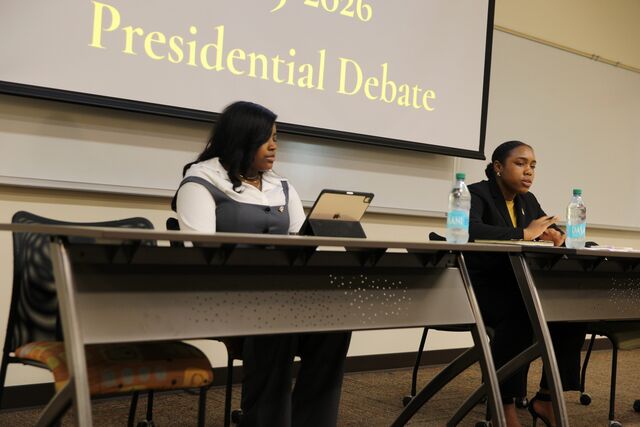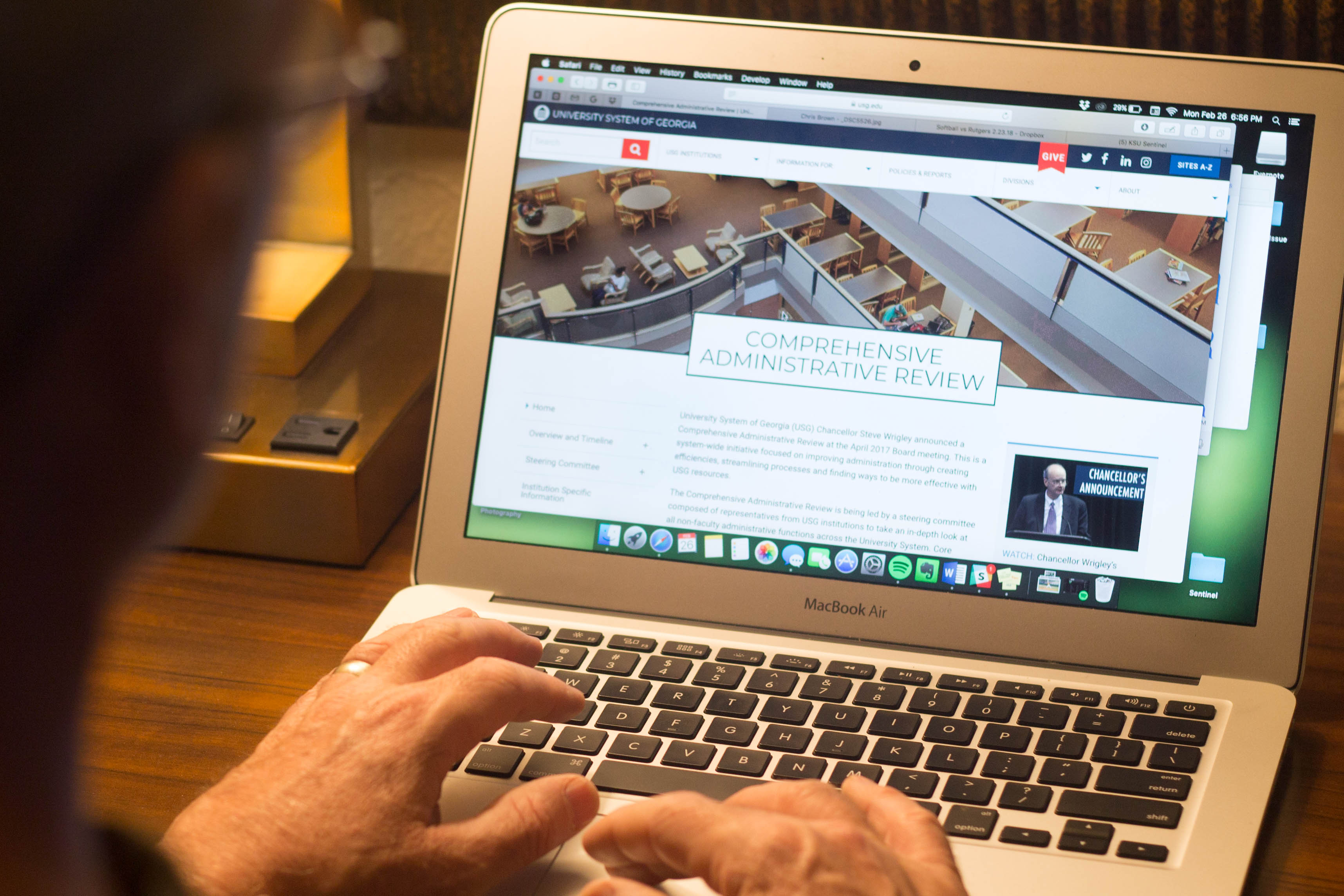The candidates for Kennesaw State’s Student Government Association (SGA) presidential election, Nyla Nelson, SGA Public Relations Chair, and Allisa George, Senator for the Wellstar College, sat for a presidential debate, offering some definitive words on their campaigns as voting season continued.
The debate was moderated by SGA Election Chair Abby Mcgehee, who asked the candidates questions ranging from how they planned to increase campus engagement through SGA to how they plan on collaborating with other student organizations.
Throughout the debate, Nelson and George maintained a similar emphasis on increasing student engagement and building bridges between the SGA and the student body.
The candidates remained civil the entire way through, but carried different debate styles, with George taking almost every opportunity to respond, while Nelson was more sparring with her words, especially when it came to responses.
The debate began with opening statements from both candidates, where Nelson keyed in on the importance of greater transparency and accessibility of SGA, and George vowed to get to work on “day one” of her administration.
On strategies to increase student engagement, Nelson championed the idea of greater outreach from SGA, including putting posters up around campus for SGA events.
George took a different approach, focusing on collaboration with the athletics department, “especially at basketball games [and] at football games.” Additionally, she mentioned greater work with the Department of Student Affairs, which oversees SGA.
Nelson and George both spoke about greater transparency efforts when the topic of communication between the student body and SGA was brought up.
Nelson put forward the idea of SGA newsletters, as well as continuing to livestream SGA meetings and using social media to better connect with students, while George pushed for a centralized KSU app that would pool all of the university’s resources, and give SGA another forum to connect with students.
Nelson pushed back on the app idea, however, saying she feared that “people will see it, but they won’t use it,” citing another campus app, LiveSafe, that’s known about, but underutilized.
Another key issue for the candidates was ways to make sure that student voices were heard and represented.
Nelson spoke on creating town halls, Q&A sessions, and SGA tabling around campus, all with the goal of giving students more ways to speak to their SGA representatives.
George took a stance more focused on working with administration, calling for senators to host events with their respective deans in what she called a “Meet the Dean Week.”
The debate pivoted to the promotion of academic opportunities for students.
Nelson advocated for the creation of “quiet spaces” on campus for neurodivergent students. She spoke of her personal motivation for the initiative, saying, “I have a little brother that’s on the spectrum and so for me, that’s something that’s extremely important to me…”
George called for more study spaces on campus in general, and suggested that a big problem is a lack of awareness about current academic KSU programs. She suggested her proposed app idea could work to remedy this.
Both Nelson and George highlighted concerns about student engagement as what they saw as the biggest issues students at KSU. Nelson put the student’s lack of support from SGA at the top of her list of issues that need to be resolved, while George talked about the lack of school pride that many students had at the university, and how that may lead to a lack of a sense of belonging among many in the student body. She emphasized the importance of that belonging with, “…studies have shown that a sense of belonging makes or breaks someone walking across the stage and graduating.”
Nelson’s and George’s visions for the future of the university and SGA dealt with different aspects of the university. Nelson spoke of an SGA that “put students first” and was more responsive to their immediate needs. George, in her “five year vision of KSU,” focused on her desire to enhance the university’s national reputation, allowing it to shed its “commuter school” reputation.
A major point of agreement between the two was on relations with clubs around campus, with both candidates emphasizing the importance of SGA working with them.
Nelson advocated for an “open door” policy when it came to mental health and wellness, with a policy like this allowing members of the student body to drop in on a senator whenever available to discuss issues that may be troubling them. Nelson believes that such a policy can create a more personable environment for students in crisis than even KSU peer counselors may be able to.
George referenced an initiative she led as a senator, called Feel Good Friday, meant to target burnout.
“What we’re trying to do is expand that to an overall SGA program. [This would involve] making sure we’re doing something every semester to raise awareness about student burnout and college burnout and healthy habits to manage stress,” George said.
With the issue of ensuring that both candidates would have enough time to perform their duties if elected, Nelson promised to step down from any other leadership roles on campus. George, instead, stressed the importance of building a competent and cooperative presidential cabinet, as well as building cooperation with the senate as the best ways to deal with time management as the head of a potential administration.
The debate represented a return to form for KSU’s SGA, as current president, Taejah Goode, did not face a challenger when her ran for office in 2024.


